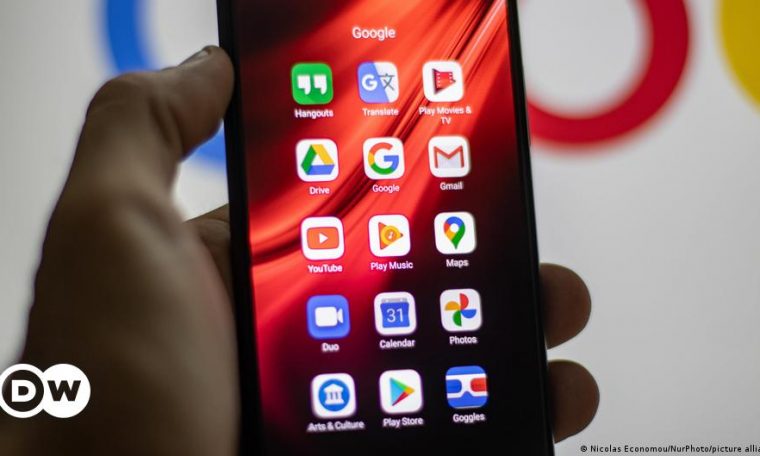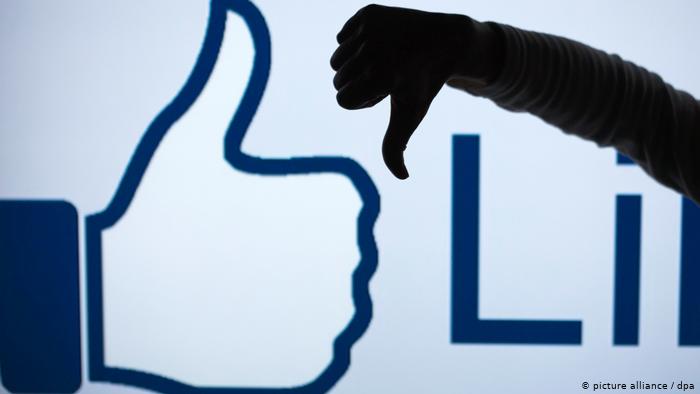
Despite the global crisis, American giants such as Amazon and Microsoft are making big sales, including in developing countries. Technology giants based abroad pay almost no tax in countries using their digital services.
A report by the British non-governmental organization ActionAid International on tax evasion by US technology companies has calculated huge losses. According to the report, 20 countries, including 12 sub-Saharan African states, are losing up to 2.3 billion euros in tax revenue from Facebook, Microsoft and Alphabet, Google’s parent company.
David Archer, a spokesman for ActionAid, also cites international tax rules as the reason, which allows large companies to transfer profits within the tax net. Archer highlights the lack of a global treaty that requires all countries to be transparent about taxes.
Losses in taxes of three companies could reach $ 2.8 billion
Losses in taxes of three companies could reach $ 2.8 billion
Unexpected hurdle
The Organization for Economic Co-operation and Development (OECD) is working on an international tax plan, but negotiations are stagnating. Archer considers the OECD to be the biggest obstacle. “It is a club of wealthy countries, which does not care so much about the needs of developing countries,” says Archer, who is delaying proposals and processes in the organization.
Mustafa Nidazhevo, founder of the African Center for Taxation and Governance (ACTG) in Nigeria, does not feel some OECD approaches are inadequate, but also says “African countries have taken their own measures to reduce the fiscal gap” . For example, they do tax transactions and wire transfers.
Nigeria is trying to combat tax evasion by technology companies on two fronts. Firstly, according to Ndajiwo, indirect tax on the added value of digital services has been included in the Finance Act from 2019.
When a Nigerian pays for their order on the Amazon, VAT goes into the government’s pocket, Ndajiwo says. Under the second approach, foreign companies based in Nigeria will not have to pay taxes on profits from digital services in the country.
Ndajiwo described this taxation of profits as the “main problem”. According to the founder of ACTG, this complex regulation, which was introduced a year ago, is not easy to implement. And this, they say, has not yet solved the problem of transferring profits into the tax net.
Even with the simple payment of indirect taxes for digital services, there is still a problem: “Companies can immediately pass taxes to the consumer,” Ndajiwo says. This occurred in the UK in 2020, when a digital tax was introduced. And it can happen in Kenya as well, experts say.

Kenya and Nigeria explore avenues

Kenya and Nigeria explore avenues
“Tax at the wrong time
Kenya has imposed a 1.5% tax on all digital services since 2021, even if a company is headquartered.
It is intended to cover global players such as Uber, a taxi company and Netflix. According to reports from local media outlets, Kenya expects to collect around 5 billion Kenyan shillings (equivalent to 37.8 million euros) during the first half of 2021.
“This tax comes at the wrong time,” says Nimmo Elmi in an interview with DW. Like her co-worker Ndajiwo, she works at ACTG – but with a focus on Kenya. “Many companies are already suffering a lot from the recession caused by Kovid-19 and are now expected to pay additional taxes.” Almy calls for a difference in taxation between foreign and Kenyan companies.
The South African-based African Tax Administration Forum (ATAF) is assisted with the introduction of digital tax, which already has 38 members from all African regions, to whom it provides technical assistance in tax matters. The ATAF also works with the African Union on this.
“From discussions with our members, we know that other African countries are considering taxing digital services,” says ATAF Executive Director Logar Voort.
Apart from Kenya, Zimbabwe has already introduced such a tax. “However, some members worry about possible US retaliation,” Logan says in an interview with D.W. “This may cause the United States to impose duties on exports from these countries.”

Taxation difficulty is gathering worldwide

Taxation difficulty is gathering worldwide
Europe also wants solutions
Anxiety is completely justified. In 2019, the US announced punitive charges against France, when the European country intended to introduce a digital tax. However, the new US administration, under the direction of Joe Biden, recently agreed that technology companies should pay the majority of their revenue in the countries where they operate.
The US has also indicated that it is also discussing a minimum corporate tax. According to Finance Minister Bruno Le Mayer, France has already responded positively to the decision – which expects an international agreement before the end of the first half of 2021.
In Africa, skepticism still persists. “While our countries are waiting for a global solution, based on consensus, they must act as a bloc and oppose potential retaliatory charges by the US”, Logan Voort believes:
Nigerian expert Mustafa Nadjiowo also says that countries work better together.



